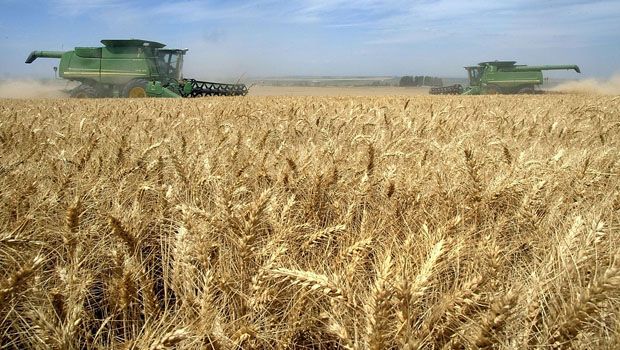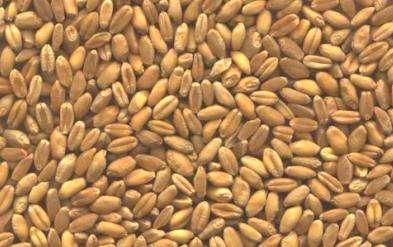| Agricultural engineering |
| Agricultural science |
| Agriculture by state |
| Agronomy |
| Animal husbandry |
| Aquaponics |
| Biotechnology |
| Dairy farming |
| Dryland farming |
| Ecology |
| Extensive farming |
| Farm |
| Free range |
| Grazing |
| History of agriculture |
| History of organic farming · |
| Hydroponics |
| Intensive animal farming |
| Intensive crop farming |
| Intensive farming |
| Livestock |
| Meat |
| Mechanised agriculture |
| Natural farming |
| Orchard |
| Organic farming |
| Permaculture |
| Poultry farming |
| Poultry farming |
| Ranching |
| Sharecropping |
| Sheep husbandry |
| Slash-and-burn |
| Sustainable agriculture |
| Universities |
| Urban agriculture |
|
What is agriculture?
Are there different types of agriculture? What are the effects of conventional agriculture? What are the effects of sustainable agriculture? Which type of agriculture practice do you think is better for the environment and ultimately ourselves? What is conventional agriculture and is it aligned with how the natural food-web works? Can you name a crop that is conventionally grown and harvested? What is sustainable agriculture and how is it aligned with he natural food-web? Can you provide an example of sustainable agriculture? Name one effect of conventional agriculture and how this may be harmful to the environment. Name one effect of sustainable agriculture and how this benefits the environment. Which agricultural practice is better for the environment and ultimately ourselves? General Who do I contact if I have a question about the environmental regulation of farms or ranches? Where can I find information about sustainability and farming? Where can I find information about organic farming? How do I order agriculture-related publications and materials from the Ag Center? Animal Agriculture I raise livestock, what environmental laws or regulations apply to me? Where do I find information on regulation of livestock feed? Where do I find information about aquaculture operations? Where do I find information about pasture, rangeland or grazing operations? Pesticides Where do I find information about fertilizers? Where can I find information about registering a pesticide? Where can I find information about pesticide establishment registration and reporting? Where can I find information about bulk repackaging of pesticides? Where can I find information about custom blending of pesticides? Where can I find information about the transportation of pesticides? Where can I find out about pesticides being applied by my lawn care company or by the apartment building where I live? Farm and Agricultural Workers |
|
What is agriculture?
Agriculture is everywhere. Agriculture is a long word so it is frequently shortened to “ag.” Agriculture can be difficult to define so to make things easier just remember that agriculture is everywhere! We use ag products while we sleep (cotton sheets), when we get dressed (clothes), when we take a bath (soap), when we eat (food), when we use paper (tree crops), and yes, even when we stop to smell the roses (floriculture). One of the best ways to remember what agriculture means is to remember the 5 F’s. Agriculture is farming, food, fabric, forestry, and yes, flowers. Agriculture is the science, art and occupation of cultivating the soil, producing crops and raising livestock. Agriculture is the very basis of civilization. It is the food we eat, the clothing we wear, the material of our homes, the gardens around us, and many of our traditions and values. In addition to food and fiber, some of the products we use everyday come from plant and animal by-products produced by farmers and ranchers for example: Health Care: Pharmaceuticals, ointments, surgical sutures, latex gloves, x-ray film. Manufacturing: Adhesives, lubricants, solvents, detergents, polymers Education: Crayons, textbooks, chalk, desks, pencils, paper Personal Care: Shampoo, lotions, cosmetics, toothpaste, fingernail polish Construction: Lumber, paints, tar paper, brushes, dry wall, particle board, tool handles |
| Rice |
| Wheat |
| Corn |
| Teff |
|
1. What factors should be considered in determining whether a food is a whole grain? 2. What are some examples of cereal grains? 3. Should soybeans and chickpeas be considered whole grains? 4. Should a corn flour or corn meal made from corn grain to which the pericarp has been removed be considered whole grain? 5. Barley has a particularly tough hull and is often pearled to make it easier to cook and digest. Can the hull and perhaps a small amount of the bran attached to the hull be removed from barley in the pearling process and it still be considered a whole grain? 6. Should rolled oats be considered a whole grain? 7. Does the term "whole grain" mean the same as "100 percent whole grain"? If a product is labeled as "whole wheat bagel" or "whole wheat pizza," how much whole wheat should it contain? What is graham flour? 8. What is durum wheat? Is it 100 percent whole grain? What products are made from durum wheat? 9. Are there standards of identity for products made from whole grains? 10. What types of label statements about whole grains are currently permitted to be made on food products? 11. What is a whole grain? 12. What are phytonutrients? 13. How Many Whole Grains Should You Eat? 14. What Counts as a Serving? 15. What is a Serving of Whole Grain? 16. Why eat whole grains? 17. What�s in a Grain Kernel? |
|
The purpose of this lecture is to help policymakers and scientists enhance crops and harvests while boosting growth and yields in the agricultural sector. This is strange to some policymakers and people living in urban places as they find it below their stature to discuss such issues. During some occasions, such issues are deliberately not reinforced in order to sabotage growth and advancement. Crops on thousands of acres of land are being damaged due to rains, strong winds, and hailstorms. Let�s first focus on rice plants and wheat. Worldwide agriculture scientists: Can you bring your heads together? How do we all prevent this? Prevention can be in terms of circulating plants which can withstand rains, strong winds, and hailstorms while monitoring weather and proper weather forecast. What has been the annual pattern over the last five decades? How do we investigate crop damage due to other causes? I would recommend further research and development. When will the report be ready? A new scenario has come up: weather modification as a means to enhance and weather modification as a means to sabotage or damage. How do we investigate crop damage due to weather? What do you think? What weather modification has been proven? What weather modification is under further research? What further research is required? Who is responsible for funding this research? Moreover, rice is grown in March and April and usually harvested in September and October. Has anyone worldwide developed a better plantation by planting in March and April while harvesting it in June? This would enable a second planting in June to be harvested in September, resulting in two rice crops per year. After that, we can plant winter crops. If you search for it, you will get it. I am sure we can get such plants and two rice crops instead of one. Q) Do you have an answer? Q) Do you have a better answer? Q) Does anyone have a better answer? Q) Does anyone else have an answer better than the answers I already have, we have? Q) Would you like to add anything? Q) Can you make me wiser? How? Q) Can you make us wiser? How? Q) Do you have any recommendations? Next |





